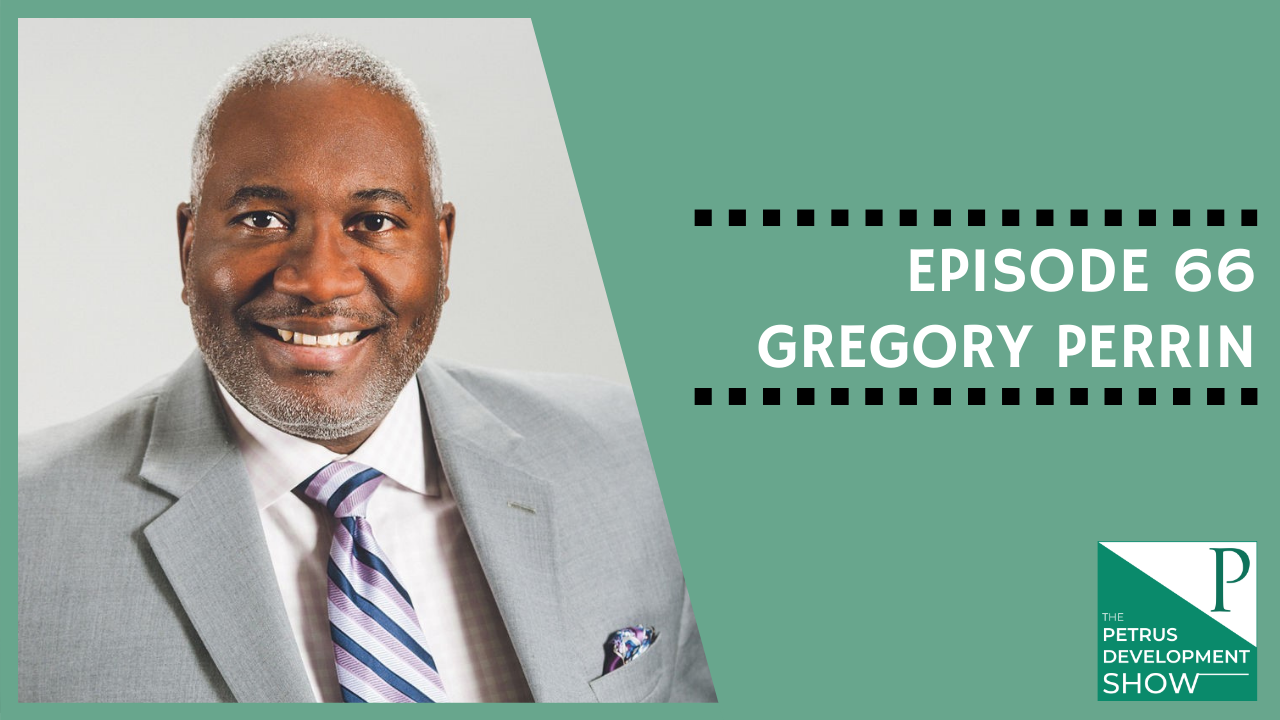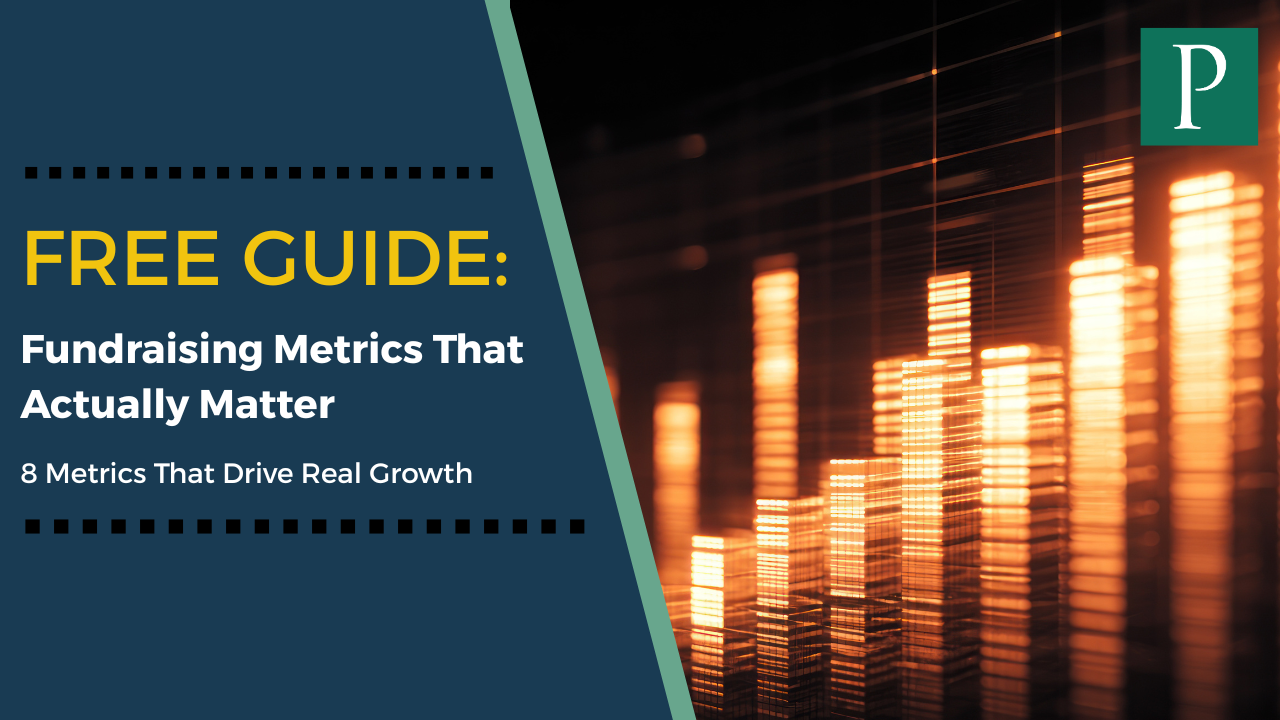Throw Out the Script - Interview with Gregory Perrin

In this episode, Andrew visits with Gregory Perrin, Associate Vice President for Development and Alumni Relations at St. Edwards University in Austin, Texas. They discuss how Gregory ended up in development and his different roles over the past 25 years. They also discuss the differences in raising money for a large public university and a small private school and what fundraising for higher education has been like in the midst of a pandemic. Gregory has some great stories and solid advice for anyone in development.
Show Notes:
Gregory Perrin is the Associate Vice President for Development and Alumni Relations at St. Edwards University in Austin, Texas.
Background
Been in fundraising for about 25 years all in the non-profit and higher education organizations. He became involved in this industry like most do: serendipitously.
St. Edwards University
Founded by the same priests and brothers who founded Notre Dame University. Making St. Edwards a sister organization. We will not educate the mind at the expense of the heart. And that pervades the staff, professors and students.
Gregory manages the fundraising team. This includes major gifts, corporate and foundation relations, alumni relations and leadership annual giving.
One of the premier programs is the CAMP program (College Assistants for Migrants Program) which give access to migrant workers to get to college. About to celebrate 50 years with this program. More than 90% of their students receive some kind of financial aid.
They work daily with their faculty members to help with grants and programs and introducing opportunities to donors.
Public University vs Private University
Large public includes more bureaucracy. It can be a little more difficult to get through the administration system. In addition to training students, there is an academic research aspect that can take away from raising funds for the students.
Private can experience a real collegiate environment and collaboration. There is a specific focus on students at St. Edwards. They are there for the student experience.
Volunteer
It is a rewards opportunity to serve on committees and boards of organizations in your local community. It has helped him to get to know his community and seeing different perspectives that he can bring back to his own organization.
Seeing the board member position from a staff position and from serving as a board member has allowed him to gain experience and knowledge in how to treat his own board members.
It has also changed how he perceives his donors in what level his organization is for them. Are we your top ten? Where do we land and how can I be sensitive to that?
How has 2020 changed your work?
St. Edwards has been able to pivot in how they meet their students. Providing for on-campus, hybrid and online options for their students.
The staff has pivoted in how they reach out to donors. They are finding that their alumni is really stepping up. They have changed in how they examine their metrics. They are looking for a meeting, not necessarily in-person, simply a meeting to connect with their donors.
How can we fit into the changes and not force our donors to fit into the tradition of how we’ve always done things just because that’s how we’ve always done things?
Advice
Always be asking. For young or new development officers, understand the art and science of fundraising. Many times, we are hesitant or cautious to ask and Gregory says, don’t be afraid to make the ask. Don’t let it stop you from picking up the phone or sending an email to start a conversation.
Don’t assume that you know what the answer is going to be. Everyone is a prospect. Talking about the mission and the impact that your organization is having, you should be talking to everyone about that. Get the message out as an ambassador on what your organization is doing.
Always speak positively about your organization. Always. We fund-raise on our reputation.
Lightening Round:
- If you could fund-raise for any organization at any time in history, what would it be?
- The Civil Rights Movement. As difficult as it would have been, he’d want to be there.
- If you could get a donor meeting with anyone living or dead, who would it be?
- Industrialists – the Fords, Rockafellers, Carnegies. They set the tone for philanthropy. Also, Frederick Douglass, how he approached fundraising.
- What is one piece of advice that you would give your past self?
- Do it. Don’t wait. Don’t sit there second guessing yourself. Go out and just do it. Do more. Don’t be so concerned. You don’t need all the answers to make a good decision.
- Who are 3 people who have most influenced you, professionally?
- Mom encouraged him to stay in school. Claire Marie, a professor who encouraged him into Arts Management. Lucy Dabney and Sylvia LaBlanc who gave him his internship at Houston Grand Opera.
- What is one fact about Gregory that most people don’t know?
- He is a playwright. Has been commissioned to write 5 plays for different organizations over the past 20 years.
If you would like to connect with Gregory, you can reach him as [email protected] or [email protected]
Andrew’s 3 Take-Aways:
- Things are changing but his university is changing in how they track their metrics. He’s encouraging his people to reach out and check in even if that doesn’t result in face to face meetings. We have to be willing to adjust our tactics to fit our donors’ situation if we want to be successful.
- The economy affects everyone differently. In every economy someone is always up and someone is always down, financially. We’ve been hearing multiple stories of donors who are stepping up their giving because their business is booming or because they know that others can’t give but they are doing alright. You have to keep making phone calls and asking for gifts.
- Serving as a volunteer for other non-profit organizations. This offers us new perspectives in how we view our donors. It can inspire you to make simple gestures that will help build trust and connection.
Action Item:
Spend some time this week thinking of organizations that you would be interested in serving with. Make a list and begin laying groundwork by researching how to get involved. You can also reach out in order to begin making connections and ask if you can serve.
READY TO BECOME A BETTER FUNDRAISER?
Sign up below to receive tools, ideas, and inspiration to take your development efforts to the next level.
We hate SPAM. We will never sell your information, for any reason.


